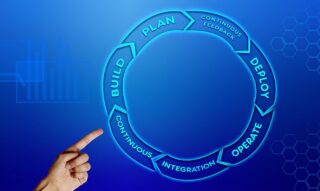Why Financial Literacy Matters More Than Ever for the Social Media Generation

The way you understand and manage money shapes your life. For those growing up in a time of smartphones, social media, and fast trends, financial literacy can feel like a boring topic. But it’s exactly what you need if you want to stop living paycheck to paycheck and start building something stable. Many people in their 20s and 30s today are smart, skilled, and full of energy—but also drowning in debt, confused about saving, and unsure how to plan ahead. The problem isn’t always lack of money. It’s lack of financial knowledge. Learning how money really works doesn’t mean giving up everything you enjoy. It means knowing how to enjoy it now without hurting your future. This isn’t just about growing wealth—it’s about avoiding regret and gaining control. If you’re part of the social media generation, this is something you can’t afford to ignore.
Living for the Moment but Forgetting the Future
If you were born in the mid-1980s or after, there’s a good chance you think more about today than tomorrow. This way of thinking affects how you live and also how you manage money. You might hear yourself saying, “Future me will handle it.” That’s common in a world built on instant updates and fast responses. But the problem comes when the same mindset affects your money decisions. Buying something without thinking twice. Spending before saving. These habits add up over time. You might think it’s no big deal now, but small choices can shape your financial future. That’s why it’s important to stop and think: how do you want life to look five, ten, or even twenty years from now?
Social Media Pressures Can Cost You More Than Money
Scrolling through Instagram or TikTok, you’ll find people showing the best parts of their lives. New homes, expensive cars, fancy vacations—everything seems perfect. And it makes you feel like you should have those things too. But most of the time, you don’t see what’s behind the photo. You don’t see the debt or the sacrifice. Trying to keep up with what you see online can lead to impulse buying and poor financial choices. You start spending money to impress others or to feel like you belong. That can easily turn into credit card debt and financial stress. It’s okay to enjoy life, but don’t let social pressure decide what’s right for your money. Choose based on what truly matters to you—not what looks good on a screen.
Earning More Doesn’t Always Mean Financial Growth
You may think a bigger paycheck will solve your problems. And yes, more income helps. But if you don’t know how to manage it, even a high salary won’t fix bad habits. Many people increase their spending every time they get a raise. They buy newer phones, bigger homes, or fancier cars. This is called lifestyle inflation. The more you earn, the more you spend—and you never actually build wealth. The key is to create a clear plan for your money before it comes in. That means setting goals, knowing what you want long term, and saving before you spend. Without that plan, it’s easy to fall into the trap of always needing more, but never having enough.
Good Debt vs. Bad Debt—Know the Difference
Not all debt is the same. Some can help you grow, while other types can drag you down. Good debt helps you buy things that increase in value or give you long-term benefits. This can include student loans for a useful degree or a loan for a modest home. Bad debt, on the other hand, is usually tied to things that lose value—like clothes, gadgets, or cars you can’t afford. Credit card debt is one of the most dangerous types. The interest adds up fast, and you end up paying much more than the original cost. Learning to tell the difference between good and bad debt can help you avoid financial stress and move toward smarter choices.
Don’t Let Credit Control Your Life
Credit cards can be helpful tools, but only if you use them right. It’s easy to get caught in the cycle of swiping first and worrying later. If you only pay the minimum balance each month, interest will pile up quickly. And that means you’ll be paying far more than the original price. Many people use credit as a way to deal with emotional spending or to fill short-term wants. But if you make that a habit, it can hurt your future. Being smart with credit means paying it off in full each month and never using it to live beyond your means. Credit should work for you—not trap you.
Pay Yourself First—Always
One of the simplest and smartest money habits is paying yourself first. That means the moment you get paid, a part of it goes straight into savings or investments—before you pay bills, buy things, or go out. Even just 10% of your income can make a big difference over time. This builds discipline and helps you build money for future needs—like emergencies, a house, or retirement. It’s not about saving what’s left after spending. It’s about spending what’s left after saving. This one habit can completely shift how you handle money, giving you more security and peace of mind.
Promotions and Raises Can Hide Bigger Problems
Climbing the career ladder feels great. More money. More respect. But if you’re switching jobs only for more income and not thinking about your values, it can lead to burnout and regret. Promotions can cover up bad financial habits because you have more money coming in. But if you’re still spending without a plan, nothing really improves. You might still have no savings, no retirement plan, and no direction. Before chasing the next title or paycheck, ask yourself why. Is it for your goals? Or just to prove something to others? Don’t let status replace purpose.
Learn Now So You Don’t Lose Later
Financial literacy isn’t just for people who work in finance. It’s for everyone who earns, spends, and saves money—which is you. One day, your parents might pass wealth down to you. Or you might be in charge of a business or a household budget. Without knowing how to manage money, all that wealth can disappear fast. Understanding how money works means you can protect what you earn, make smart choices, and build something that lasts. Don’t wait for a crisis to start learning. Make it a priority now—your future depends on it.




